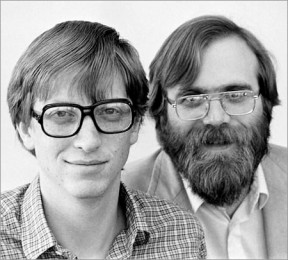 Sir William Gates III is not the only former Microsofty who wants to save Africa from killer illnesses – Paul Allen wants to get in on the act too.
Sir William Gates III is not the only former Microsofty who wants to save Africa from killer illnesses – Paul Allen wants to get in on the act too.
Allen’s charitable foundation has said that it will donate $9 million to support USe efforts to fight the Ebola outbreak in West Africa.
The money will go to the Centres for Disease Control and Prevention (CDC) comes at a time when international groups, including Doctors Without Borders and the World Health Organization, have said resources to contain the epidemic and treat those affected are falling tragically short.
Allen said the donation from the Paul Allen Family Foundation will help CDC establish emergency operations centres in Guinea, Liberia and Sierra Leone. In these regions, Ebola has killed about 2,300 people and shows no sign of slowing six months after it began.
Writing in his bog, Allen said that the tragedy of Ebola is that we know how to tackle the disease, but the governments in West Africa are in dire need of more resources and solutions. He said that the developed world needs to step up now with resources and solutions.
This is not the first time Allen has stepped up to the plate to fight Ebola. Last month, Allen’s foundation donated $2.8 million to the American Red Cross for its work on the outbreak.
Bill & Melinda Gates Foundation have donated $50 million to United Nations agencies and other international groups to purchase supplies, such as protective gear for healthcare workers treating Ebola patients, and to expand the emergency response.
This needs to be compared with the efforts of the US government. US President Barack Obama asked Congress for $88 million in new Ebola funding, including $25 million for CDC, but this week congress said they would provide no more than $40 million. We presume this is because Africans do not pay them for campaign donations and there is not enough oil in the region to justify a US task force.
Allen said his foundation’s gift would help CDC establish and equip emergency operations centres in the three most-affected countries, focusing on public health, not patient care.
He said that the centres will use “data management and communication systems for disease and patient contact tracing, to detect and stop the disease from spreading,” Allen wrote. They will also expand lab testing to identify new outbreaks, and disseminate information about the epidemic to the public.
Since resigning from Microsoft in 1983, Allen has become a prominent philanthropist, supporting scientific research through the Allen Institute for Brain Science and the Allen Institute for Artificial Intelligence.





